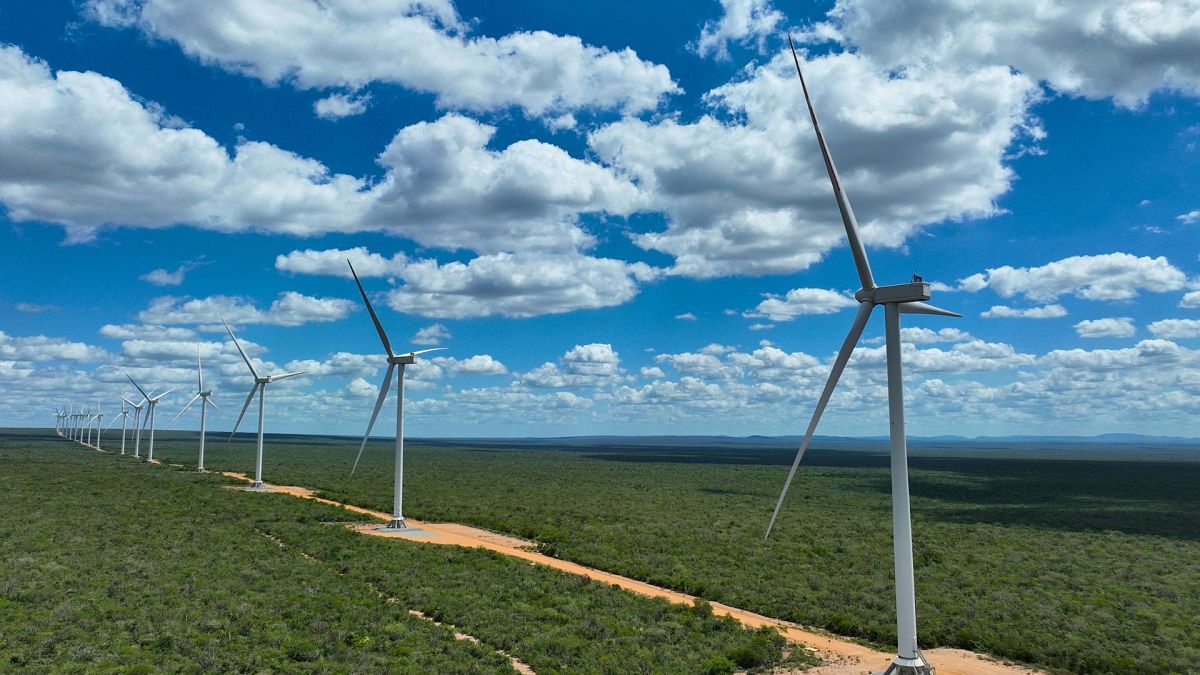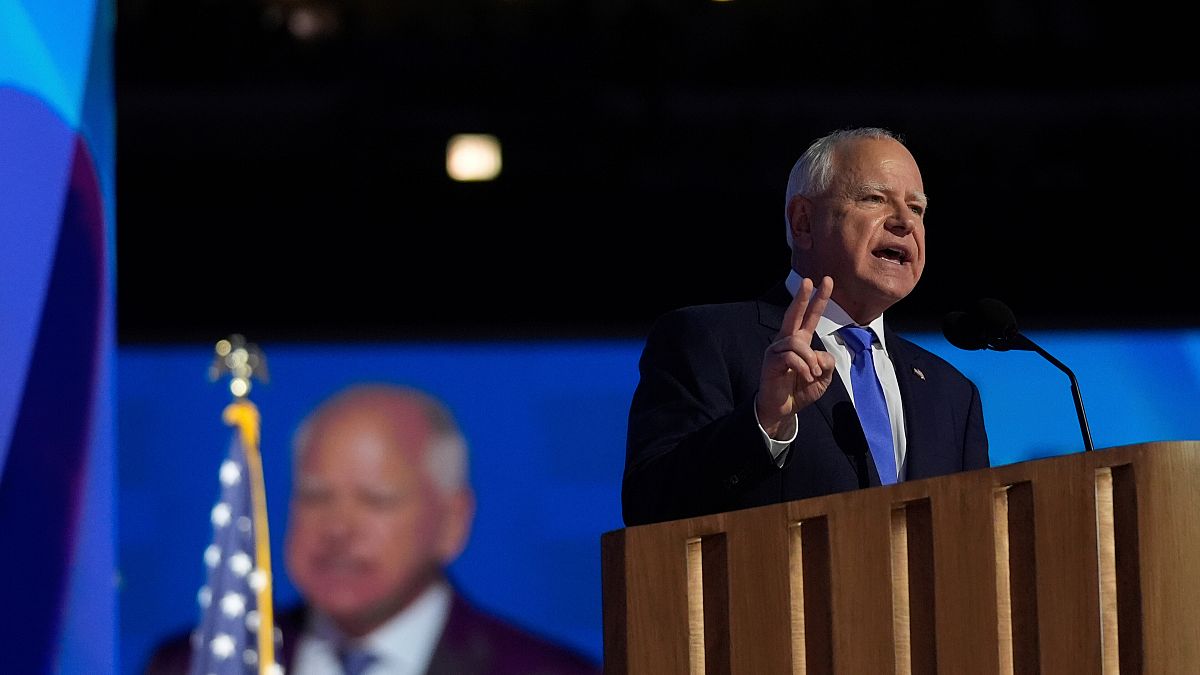‘Lacking ambition’: US, Russia and India fall behind on wind power

Seven out of 10 countries set to exceed their wind power targets are in Europe, according to a new report.
The world is falling well short of a promise made at global climate talks last year to triple the amount of wind power, according to a report by energy think tank Ember released last week.
Last December, countries at the UN COP28 climate conference committed to tripling all renewable electricity by 2030. Wind power specifically must triple to achieve that, according to the International Energy Agency (IEA) and others.
Examining national targets set by 70 countries that account for 99 per cent of existing wind power, Ember, an energy nonprofit based in London, projects that over the next six years, wind power will double, not triple, compared to the 2022 baseline.
The report looked at wind turbines both onshore and offshore.
“Governments are lacking ambition on wind, and especially onshore wind,” says Katye Altieri, electricity analyst at Ember. “Wind is not getting enough attention.”
Wind often blows hardest when the sun is not high in the sky, making it a good complement to solar energy in efforts to make clean electricity 24 hours per day.
Which countries are likely to miss their wind power goals?
The report also measured countries’ progress towards their own goals. The US ranked worst on this, falling 100 gigawatts short, or enough to power more than 30 million homes.
The target used for the US comes from the National Renewable Energy Laboratory, part of the Energy Department. In an email exchange, the department declined to comment.
The second-biggest gap between national targets and wind projects in development was in India, at more than 30 gigawatts. Despite having considerable wind potential, only 4 per cent of electricity in India comes from wind, says Altieri. Several officials at India’s energy ministry did not reply to emailed requests for comment.
Ranking best by this measure were Brazil and Finland which are on track to exceed their wind targets by 15 and 11 gigawatts respectively. They were among just 10 countries due to surpass their goals. Seven of the 10 were in Europe, including Türkiye.
Countries with strong wind fail to tap their potential
Brian O’Callaghan, a lead researcher at the Smith School of Enterprise and the Environment at the University of Oxford, England, points out technology is key. Wind is stronger at altitude, so taller turbines can produce more electricity.
The past two decades have seen “dramatic technological improvements leading to taller turbines, especially offshore,” he says.
That means there is a big opportunity for countries willing to grasp it.
Wind speed also matters. Doubling wind speed results in an eightfold increase in power.
“Most coastal nations have barely tapped into their offshore wind resources,” he says. “The UK is a prime example.”
Some countries have strong wind but have barely begun building out wind turbines. Altieri points to Russia, Japan and South Korea in this category.
Russia has among the greatest wind potential of any country, according to the NREL, but Ember said it generated less than 1 per cent of its electricity from wind in 2023.
Why are these countries falling behind on wind power?
John Reilly of the Massachusetts Institute of Technology, who’s studied energy policy and climate change for 45 years, says Russia is not committed to reducing greenhouse gas emissions.
“It has huge amounts of natural gas and coal, so there’s no real economic incentive for them to develop wind,” he says.
Russia’s Energy Ministry did not respond to emails seeking comment.
Like many islands, Japan is also very windy, but generates just over 1 per cent of its power from wind, Altieri says.
“The ocean is very deep just a little bit offshore of Japan, so that makes it more difficult,” says Reilly. The country is also steeply mountainous, making it hard to place turbines, he says.
Heavy regulation in South Korea makes it difficult to build wind turbines and public opinion had slowed development further, he says. Worldwide, there has often been resistance to wind turbines.
Japan’s Trade and Economy Ministry did not respond to email requests for comment. South Korea’s Energy Agency could not be reached for comment.
Falling prices have allowed solar to eclipse wind power
More broadly, the tumbling price of solar power may help explain the comparative lack of interest in wind, says Reilly.
“When many of these big commitments were made,” he says, “wind looked like the cheapest renewable energy source.”
But since 2020 the price of solar has fallen dramatically, he says.
While some countries are lagging behind, the study’s lead author Altieri says there are reasons for encouragement.
“Europe is doing great,” she says, and that’s with the North Sea, an incredible wind resource, barely tapped.
She predicts Europe and China will continue to be dominant in the expansion of electricity made from the wind.
Source: Euro News















